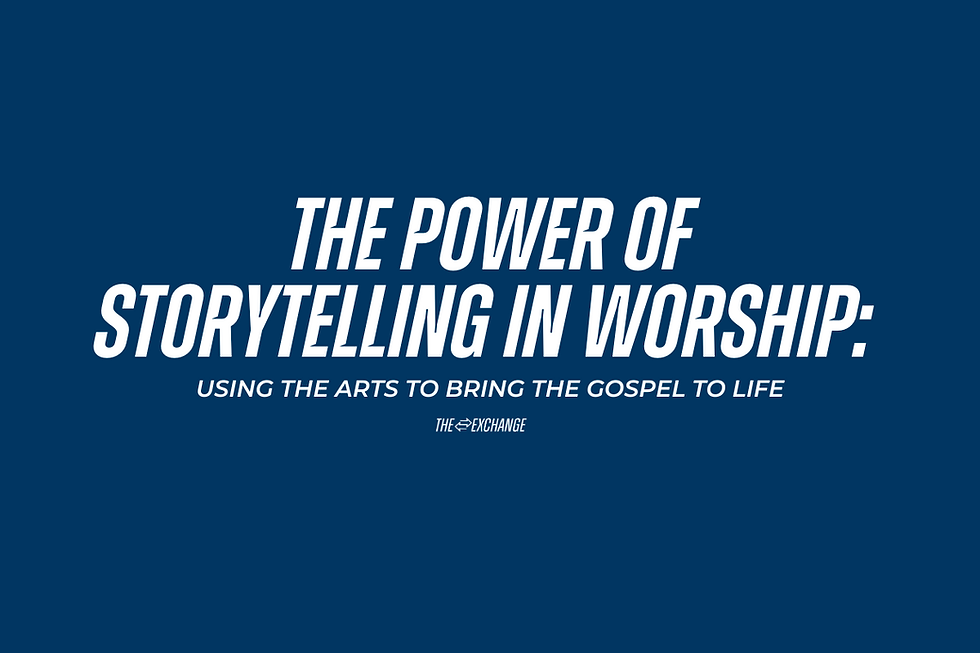8 Church Systems Every Church Needs to Thrive
- The Exchange Team

- Mar 19
- 3 min read
Updated: Mar 26
Giving Honor Where It's Due
This post is inspired by the insights shared during a powerful workshop led by Min. Joy Pittman, founder of When Faith Meets Strategy™️, where we talked about something that’s often overlooked in church leadership—systems. We all know how to have church, but do we have systems in place to make sure our ministry runs smoothly, people stay engaged, and our reach extends beyond Sunday morning?
Too many churches struggle—not because the Spirit isn’t moving, not because people don’t love God—but because they don’t have the right systems in place to sustain the work. Ministry is not just about the moment, it’s about the movement. And movements require strategy.
So let’s get into it—8 systems your church needs to grow, thrive, and truly impact the Kingdom.
Why Church Systems Matter
A house with no foundation won’t stand. A church with no systems won’t grow. It’s that simple.
How many times have we seen churches where:
🚨 Visitors come once and never return?
🚨 Volunteers burn out because there’s no structure?
🚨 The only time the church talks about money is during offering time?
🚨 The Sunday service is powerful, but there’s no clear discipleship process?
If any of these sound familiar, it’s not a people problem—it’s a systems problem. The good news? Systems can be built, strengthened, and refined. Let’s break them down.
The 8 Essential Church Systems
1. Discipleship & Spiritual Growth
Salvation is just the starting point. People need a clear path to grow in their faith—beyond Sunday. Small groups, Bible studies, new believer classes, and mentorship programs are all ways to make sure people don’t just attend church but are transformed by it.
2. Guest Experience & Assimilation
First-time visitors decide within minutes if they’ll ever come back. Do they feel seen? Welcomed? Do they know what to do next? Having a system for greeting, follow-up calls, digital connection cards, and personal invitations back keeps them engaged.
3. Volunteer & Leadership Development
We know the phrase—"many hands make light work." But too often, we rely on the same five people to do everything. A solid volunteer system ensures that new people are trained, plugged in, and excited to serve, without feeling overworked.
4. Financial Systems & Stewardship
Ministry needs resources. We can pray for provision, but we also have to plan for it. A healthy financial system includes clear budgeting, consistent tithing and giving strategies, transparency, and multiple ways for people to give (online, text-to-give, etc.).
5. Communication & Digital Presence
A church without strong communication will always struggle with engagement. Members should never have to guess what’s happening in the ministry. Your social media, website, and texting/email lists should work together to keep people informed and excited about what’s next.
6. Outreach & Evangelism
Jesus didn’t just wait for people to come to Him—He went to where the people were. Your church needs a system for reaching beyond its walls. That could mean food distribution, prison ministry, digital evangelism, or local partnerships—but whatever it is, it must be consistent.
7. Worship & Service Planning
Worship should be powerful, but also well-prepared. Having a system for planning services (music, tech, sermon prep, flow of service) makes sure everything runs smoothly—so the focus stays on God, not logistics.
8. Facilities & Operations
Your church building (or online platform) needs to be maintained! From sound systems to seating, from livestream quality to the overall atmosphere—the little things matter. A structured system ensures that your physical space enhancesworship, not distracts from it.

Action Steps: Strengthening Your Church Systems
If you read this list and realized you need to make some changes, don’t panic—start somewhere.
Identify the system that needs the most work.
Gather a small team to assess what’s working and what’s not.
Develop a simple plan to improve that system—step by step.
Set clear roles and accountability so things don’t fall through the cracks.
Track progress and refine as needed.
Building strong church systems isn’t about being perfect—it’s about being faithful. When your systems are in order, ministry flows freely, people grow, and the church expands.
Final Thoughts
Pastor, your church is built for more. The anointing is there. The calling is there. Now it’s time to make sure the systems are there so that the work of the ministry doesn’t just rest on you—it grows through the entire church.
Which system do you need to focus on first? Drop a comment or share this with another leader who needs to hear it.



Comments